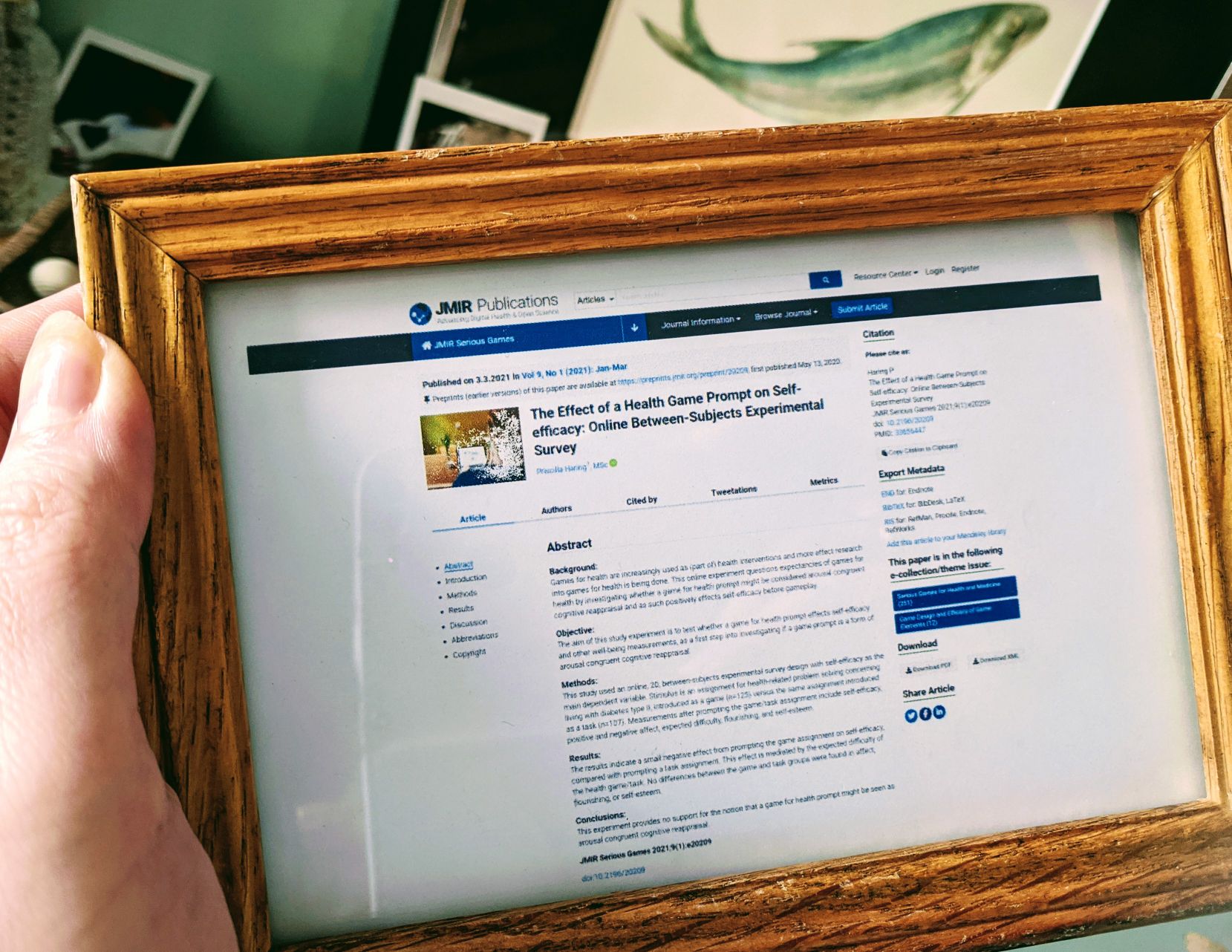Cognitive reappraisal is a change in cognition which allows for the interpretation of an emotion-eliciting situation in such a way as to alter the emotional impact it has [1]. It is using what you think to change what you feel. Cognitive reappraisal was found to increase cortisol reactivity in both a public speaking task and a cold pressor pain task, which suggests that cognitive reappraisal might even support greater physiological reactivity to acute stress and that it may increase active coping strategies [2].

One experiment showed the simplicity of cognitive reappraisal by announcing an anxiety-inducing math test as a “challenge.” This decreased the experienced threat of the test and improved math performance among both high-school and university students [3]. Cognitive reappraisal might also be an effective strategy for mitigating the effects of experiencing anxiety from health-related messages.
Health-risk information can be threatening in its nature and induce defensive responses [4], and health appeals can be interpreted as threatening as they confront us with disease and our own mortality [5]. The resulting state anxiety can drain working memory capacity, decrease self-confidence, harm task performance [6], and has been linked to a lowering in self-efficacy [7]. These processes are especially pertinent in a health environment, as on the one hand health information can elicit negative emotions, while on the other hand self-efficacy is known to play a role in achieving effective health behaviors [8].
part of The Effect of a Health Game Prompt on Self-efficacy: Online Between-Subjects Experimental Survey
- Gross JJ. Emotion Regulation: Current Status and Future Prospects. Psychological Inquiry 2015 Mar 09;26(1):1-26. [CrossRef]
- Denson TF, Creswell JD, Terides MD, Blundell K. Cognitive reappraisal increases neuroendocrine reactivity to acute social stress and physical pain. Psychoneuroendocrinology 2014 Nov;49:69-78 [FREE Full text] [CrossRef] [Medline]
- Alter A, Aronson J, Darley J, Rodriguez C, Ruble D. Rising to the threat: Reducing stereotype threat by reframing the threat as a challenge. Journal of Experimental Social Psychology 2010 Jan;46(1):166-171. [CrossRef]
- van Koningsbruggen GM, Harris PR, Smits AJ, Schüz B, Scholz U, Cooke R. Self-Affirmation Before Exposure to Health Communications Promotes Intentions and Health Behavior Change by Increasing Anticipated Regret. Communication Research 2016 Jul 09;43(8):1027-1044. [CrossRef]
- Hastall M, Sukalla F. Multiples Framing in der Gesundheitskommunikation: Annahmen und Befunde. Medien und Gesundheitskommunikation 2013;201:219. [CrossRef]
- Eysenck M, Calvo M. Anxiety and Performance: The Processing Efficiency Theory. Cognition & Emotion 1992 Nov;6(6):409-434. [CrossRef]
- Bandura A. Self-efficacy: The exercise of control. New York, NY: Worth Publishers; 1997.
- Maher K. The effect of youth diabetes self-efficacy on the relation among family conflict, disease care and glycemic control. VCU Scholars Compass. Virginia: VCU University Archives; 2014. URL: https://scholarscompass.vcu.edu/etd/3495 [accessed 2012-04-12]
